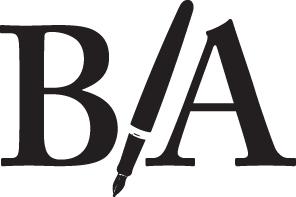A Foot in the Mouth: Verbal Processors Beware
“A fool takes no pleasure in understanding, but only in expressing his opinion. ”
Some of us are verbal processors. And we must beware of talking too much.
I'm not talking about when verbally processing in the quietness of your own home. Or thinking aloud while walking the dogs. Or figuring out a solution to a problem while making dinner or doing the dishes (some of us do all of these things). The worst you'll get in this case is a look from your spouse, partner, or housemates. "I'm starting to worry about you, you're talking to yourself again..."
No, verbal processors need to be aware (beware) when working with clients or in meetings with colleagues.
We sometimes fail to listen.
It's easy to vocalize what sounds and feels like opinions before completely understanding the person, the problem, the predicament at hand. This comes across as foolish.
Because it actually is foolish.
The lost art of listening. It's not something any of us do very well in our frenzied, distracted, digital-GPS driven society.
In fact, I find my listening skills to be at their worst when someone is giving me verbal directions.
Guy at the gas station: "... from here take a left on Main Street, and take that to the third light where you'll make a right. Follow that until you go past the school. Then ..."
Me: I stopped actually listening to you way back at Main Street and don't know what you're saying right now. I'll use my phone.
I wonder if that might be happening in more conversations than just the cartographical ones?
Like every other skill, listening for understanding can be cultivated and honed. And for us verbal processors - it must be cultivated and honed, lest we act foolishly. Listening for understanding is a key leadership skill, especially when leading from the back. Here are a few things to put into practice when listening intentionally.
Listen with empathy (while avoiding conclusions or judgements)
And by all means never verbalize conclusions or judgements. This is so important, but tougher to do that one would think. When in a conversation or discussion, it helps to remember - what I'm hearing now is one perspective of this information, along with whatever biases are ingrained into this person's psyche. The proverbial grain of salt is always important. This has nothing to do with trust, but everything to do with perspective and our attempt to understand issues in the complex landscape of human relationships. There's always more to an issue/topic/situation than any one of us can possibly know. So gather as much information from as many people as possible before landing on a conclusion. And even then, hold all conclusions and judgements loosely. There could always be more to the story.
Listen by writing
It's not always possible, or appropriate, to write while in a conversation or a meeting. However, I schedule down time immediately after important conversations so I can process the conversation with a notebook and a pen. If appropriate, I pull out a legal pad and a pen during a meeting and ask: "Do you mind if I take some notes?" I've never had anyone say, "no." This ends up becoming a kinesthetic act that helps my cognitive processing. In other words - it's science. Writing helps you think.
Side note - If taking notes in a meeting or a conversation, avoid using an electronic device. Typing on a computer or a phone or an iPad is distracting and feels like there's a possibility you're actually not taking notes for a meeting, but texting your friends or playing "Angry Birds" instead. I have a friend who takes notes with his iPad and an Apple pencil - which works. There's something to physically writing things down rather than tapping or typing that feels like deeper engagement.
Listen by asking
Asking questions is the best way to dig deeper into a conversation. Here are several questions I inevitably ask:
- What does this mean?
- How did this feel for you?
- What is your opinion/what do you think about ....?
- Could you clarify ...? While taking notes - write down questions as they come to you. Ask them when appropriate. It helps engage - and assists in deeper understanding.
Listen by repeating.
This is a simple listening tool that's rarely used.
"For my own clarity, what I'm hearing you say is ..."
Process by writing. A great practice for the verbal processor.
And repeat your understanding back to the person/group. Again, this is a super-basic technique that's not practiced nearly enough. Try it and get into the habit of using it.
Habit. Maybe that's what this comes down to? Get into the habit of active listening for understanding.
At the very least, listening gives the appearance of smart. Active listening ultimately pays off with understanding and wisdom.
